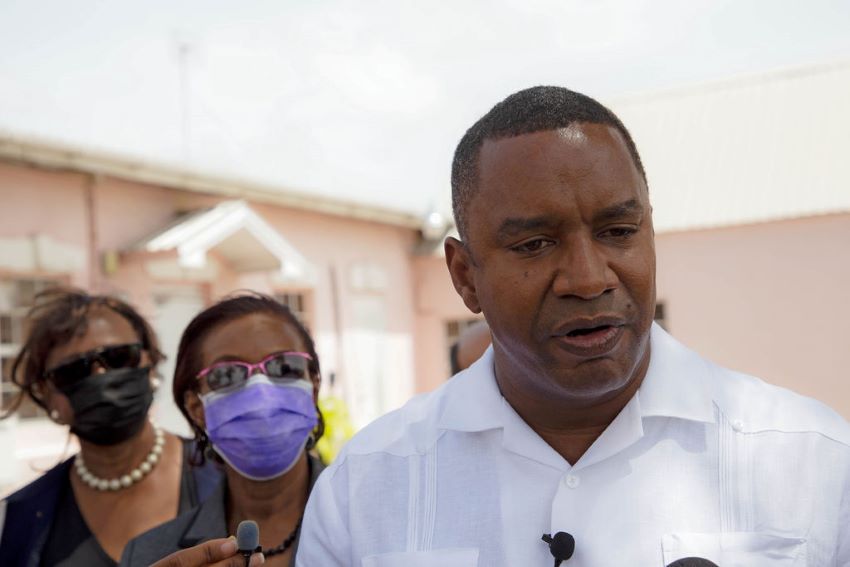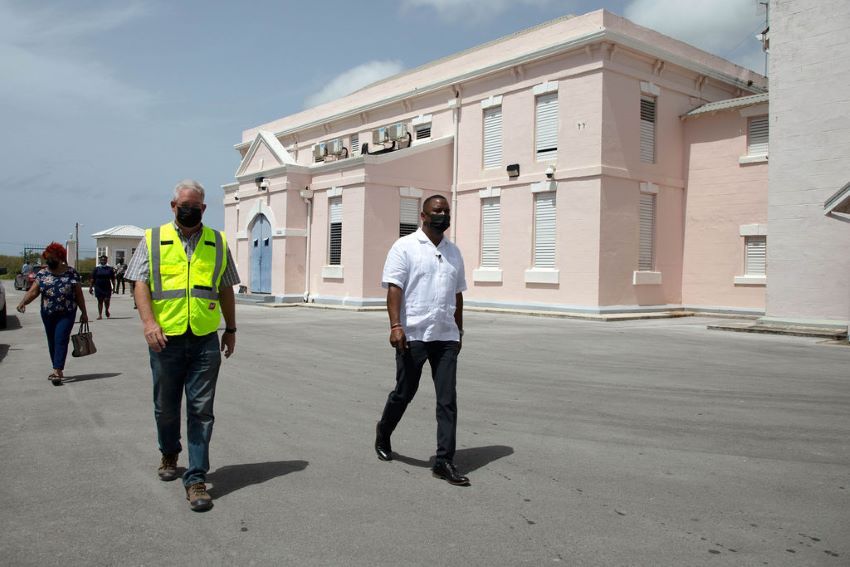
Critical recommendations outlined in a departmental inquiry on the Government Industrial School (GIS) are being given priority treatment by Government as it moves to reform that institution.
Moving the females from the Barrows, St. Lucy facility to Dodds, St. Philip and addressing staffing issues are key among those being prioritised.
Minister of Home Affairs and Information, Wilfred Abrahams, gave this assurance at a recent press conference at his Wildey, St. Michael office where the findings and recommendations of the departmental inquiry were released.
“Where necessary, we will have to find the resources. Right now we have to go through the recommendations and prioritise them. For critical things, the money has to be found,” he stated, noting that the report findings and recommendations were presented and adopted by Cabinet.
Minister Abrahams stressed that some of the residents of the institution came from vulnerable backgrounds and every effort would be made to ensure that they were comfortable and benefiting from the reform initiatives, while in the care of Government.
The findings and recommendations were outlined by Chair of the inquiry panel and former Deputy Commissioner of Police, Oral Williams, who said a total of 89 persons appeared before the panel and 109 interviews were conducted.
He explained that the inquiry highlighted the fact that there were a number of staffing concerns at the institution. These, he said, related to internal issues among staff members and their inability to deal with some of the current challenges presented by the wards.
Mr. Williams noted that the panel recommended that an audit be conducted of the staff at the institution to determine who would fit into a reformed institution.
“Additionally, there should be a continuous training programme for staff. These should include an induction course for every employee before he or she commences employment at the Government Industrial School, and refresher courses throughout the year for every category of employee,” he said.
Meanwhile, the Chair also stated that the GIS was not in full compliance with the United Nations rules relating to juveniles being held in custody. However, he noted that the Ministry sought the assistance of a child justice consultant, and UNICEF to assist, and as a result the Lucy Dawes Operational Manual was prepared.
Lamenting that had it been followed, it would have significantly improved the policies and practices at the GIS, he said: “The inquiry panel recommended that the administration should move with this to ensure that the Lucy Dawes document is perfected and its recommendations are implemented.”

At the same time, Mr. Williams said the panel also identified the need to accelerate the process of enacting legislation related to juvenile justice, to give the required legal status to the recommended reform.
Noting that the existing legislation dates back to 1926, he pointed out that there was a new Child Justice Legislation Act which was drafted in 2019, but was yet to be laid before Parliament. That legislation, he added, was awaiting companion legislation governing child protection.
“The inquiry panel is of the view that the implementation of the appropriate legislation would make it easier for the institution to follow the United Nations rules,” he said.
Another area of concern raised was that the educational requirements of the residents were not being adequately met, and there was little evidence to suggest that an academic, technical, vocational or physical instruction programme was provided.
According to Mr. Williams, the inquiry recommended that full-time and part-time teachers with academic qualifications should be employed and teaching done in mixed ability groups.
The mental health issues of residents also presented another area of concern for the panel, and a recommendation was made for the institution to have a dedicated medical unit comprising a team of doctors, psychologists, psychiatrists and nurses.
As it relates to discipline at the institution, there is a recommendation that there be a move away from a punitive form of punishment to one which seeks to rehabilitate those under the care of Government, through a system of rewards and sanctions.
Mr. Williams, emphasising that the reform being implemented at the GIS would encompass every aspect of the child’s life, said it would impact their educational, technical, vocational, physical, psychiatric and psychosocial needs.
Other members of the panel noted that there was a lot of work to be done at the institution, but they agreed that while some stories were “horrific”, there were a few “shining lights” among the wards at the Government Industrial School.
